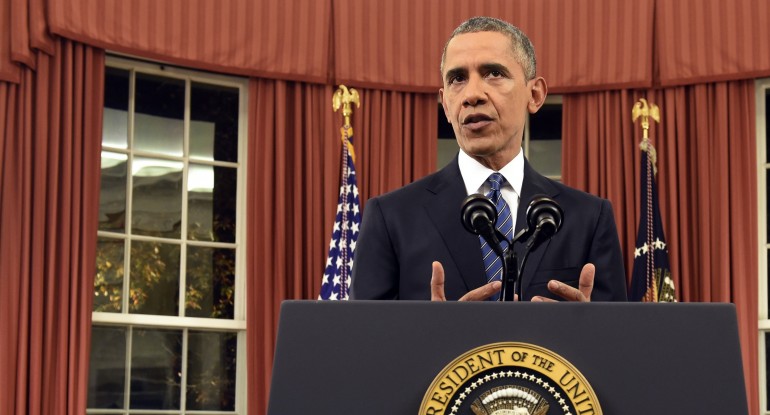Texas Governor Greg Abbot has called for a Constitutional convention of states.
A convention is one of two ways that the U.S. Constitution can be amended, and it’s described in Article V. One way is that Congress can propose amendments approved by two-thirds of the members of both chambers. The other method allows two-thirds of the state legislatures to call for a convention to propose amendments. Republicans backing the idea are confident that because they control state government in a majority of states, their ideas would prevail.
Democrats are horrified. The Huffington Post first ran this post with a headline that he wanted Texas to secede! I guess they thought better of the scare tactic.
Texas Gov. Greg Abbott (R) on Friday proposed a series of amendments to the U.S. constitution that would permit states to override the Supreme Court and ignore federal laws.
One of the proposed measures would allow a two-thirds majority of the states to override federal regulations, while another sets the same threshold for overturning decisions by the Supreme Court. The governor also wants to change the Constitution to block Congress from “regulating activity that occurs wholly within one state,” and to require a supermajority of seven Supreme Court votes before a “democratically enacted law” can be overturned.
OK. That’s fair enough.
The plan lays out nine specific proposed amendments that would:
Prohibit congress from regulating activity that occurs wholly within one state.
Require Congress to balance its budget.
Prohibit administrative agencies from creating federal law.
Prohibit administrative agencies from pre-empting state law.
Allow a two-thirds majority of the states to override a U.S. Supreme Court decision.
Require a seven-justice super-majority vote for U.S. Supreme Court decisions that invalidate a democratically enacted law
Restore the balance of power between the federal and state governments by limiting the former to the powers expressly delegated to it in the Constitution.
Give state officials the power to sue in federal court when federal officials overstep their bounds.
Allow a two-thirds majority of the states to override a federal law or regulation.
Balancing the budget is probably pie-in-the-sky but the others sound reasonable to me.
Glenn Reynolds, who is a Constitutional Law professor thinks so, too.
This proposal has shocked some people. Writing in The Washington Post, Catherine Rampell — apparently unaware that the Constitution itself provides for amendments — is appalled, saying that Abbot wants to ”blow … up” the Constitution. According to Rampell’s analysis, if you love the Constitution, you can’t simultaneously want to change it.
This would come as a surprise to the framers, who actually ratified the Constitution and then, immediately, passed 10 amendments known as the Bill of Rights. They then followed up in short order with the 11th Amendment — protecting state sovereignty from federal courts — and the 12th Amendment, which corrected serious problems in the way presidential elections were conducted.
In fact, such a convention has been discussed for years but there have been fears that a state Constitutional convention could get out of hand.
opposition to a convention is more about locking in changes made through other means — Supreme Court decisions like Roe v. Wade and Baker v. Carr, or just longstanding bureaucratic practice that courts and the public have come to accept — rather than through a formal convention where the changes would have to be approved by the American people as a whole.
The real fear, I suspect, is that the proposals urged by Abbott, which would roll back much of the political class’s successful power-grab over the past century, would prove popular enough to pass. If that happened, the federal government would become both smaller and more accountable, two political-class nightmares.
In an era when Bernie Sanders and Donald Trump lead the two parties’ presidential campaigns, such fears seem a bit overwrought.
Reynolds’ conclusion is also apt.
Another nice feature of Abbott’s proposal — which is, as the Houston Chronicle notes, “well within … the mainstream of Republican governors” — is that it doesn’t depend on controlling the White House. The Constitution provides numerous checks and balances, and the Republicans are wise not to depend solely on the presidency.
I’m not yet ready to say that a convention to discuss constitutional amendments is a good idea. But to the extent it panics our current political class, which I believe to be probably the worst political class in our nation’s history, it’s looking like a better one.
Mark Levin, who I consider to be too strident, is also a Constitutional lawyer and wrote a book about a proposed convention in 2014.
Levin’s amendments include:
1. Term limits, including for justices.
2. Repealing Amendment 17 and returning the election of senators to state legislatures
3. A congressional supermajority to override Supreme Court decisions (overruling what could be a stacked court)
4. Spending limit based on GDP
5. Taxation capped at 15%
6. Limiting the commerce clause, and strengthening private property rights
7. Power of states to override a federal statute by a three-fifths vote.
There is some similarity to Abbot’s proposal.


